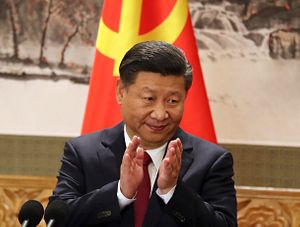It was the week the world had been awaiting for over a year – from October 18-25, the 19th National Congress of the Chinese Communist Party (CCP) convened in Beijing. By the end of the gathering, which is held only once every five years, China had new elites, in the form of five new faces on the Politburo Standing Committee, while CCP General Secretary Xi Jinping cemented his power even further through the inclusion of “Xi Jinping Thought” in the Party Constitution.
To explain the intricacies and significance of the political signalling at the Party Congress, The Diplomat’s Shannon Tiezzi interviewed Dr. Willy Lam, an adjunct professor in the Center for China Studies at the Chinese University of Hong Kong and editor of the just-published Routledge Handbook of the Chinese Communist Party, about China’s biggest political event.
On the opening day of the Congress, Xi Jinping’s contribution to Party doctrine was revealed as “Xi Jinping Thought on Socialism with Chinese Characteristics for a New Era.” What did you make of this slogan? What does it tell us about Xi’s desired legacy in the Party?
“Socialism with Chinese characteristics for a new era” refers largely to a grand plan to render China into a “great modern socialist country” by mid-century. Thus, China will realize overall socialist modernization during the 2020 to 2035 period. And in the ensuing 15 years, China will develop into a “great modern socialist country,” or a superpower that is capable of challenging the United States. Xi listed in his Congress address 14 ways and means to achieve this overarching task. They include boosting “comprehensive rule by law,” “perfecting democratic systems,” and “encouraging and supporting… the non-state-sector economic development.” However, these efforts clearly contradict Xi’s most important principle, namely that the “Party exercises leadership over everything.”
Independent historian Zhang Lifan has noted that “there is no theoretical innovation” in the idea of a new era of socialism with Chinese characteristics. Other analysts have pointed out because this is a long-term goal lasting decades, the concept has provided the justification for Xi to remain practically “emperor for life.”

































